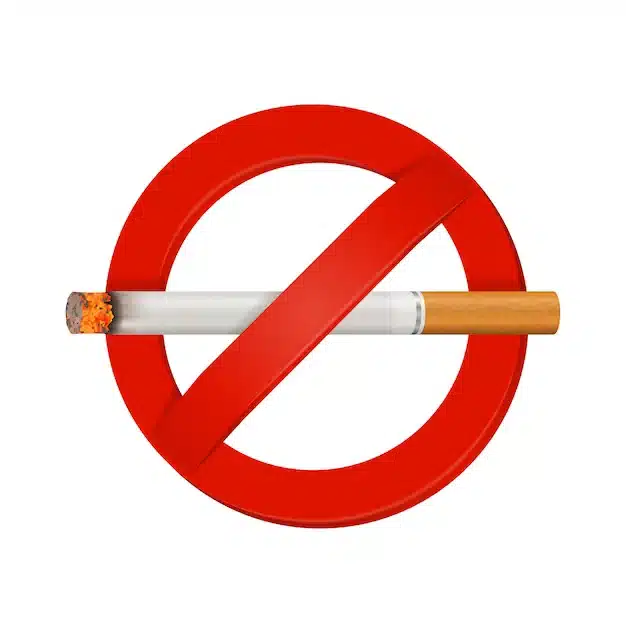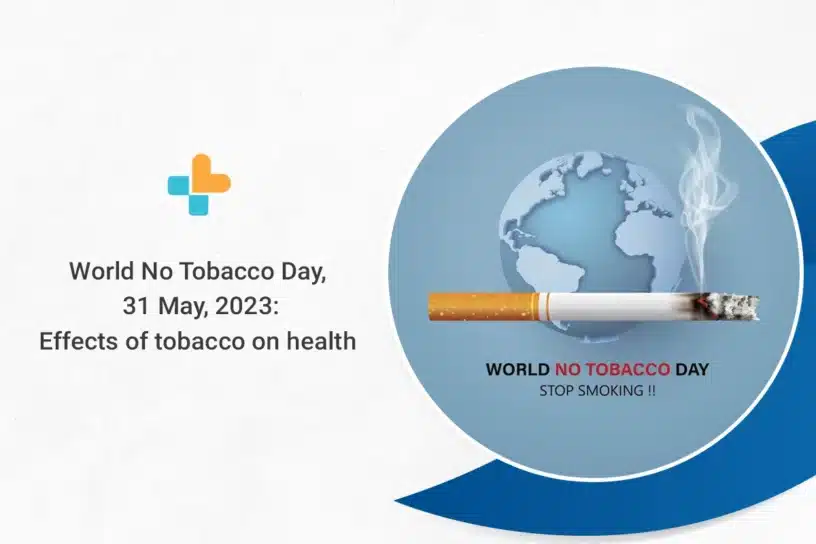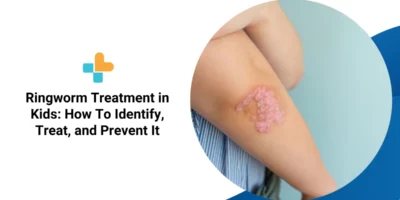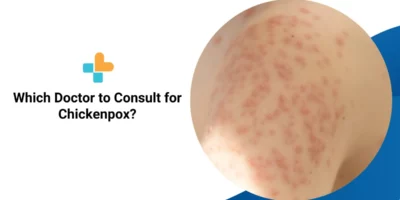World No Tobacco Day was established by the Member States of the World Health Organization in 1987 to raise global awareness about the widespread issue of tobacco use and its preventable illnesses and fatalities. World No Tobacco Day is observed globally on May 31. This annual event aims to inform the public about the dangers of tobacco consumption, shed light on the business practices of tobacco companies, highlight the efforts of WHO in combating the tobacco epidemic, and empower individuals worldwide to prioritize their right to health and well-being while safeguarding future generations.

Did you know?
- According to the reports from the Global Adult Tobacco Survey India, 2016-17, approximately 267 million adults in India, which accounts for 29% of the adult population, are tobacco users.
- According to the reports from 2022 by World Health Organization, every year, tobacco-related causes claim the lives of over 8 million individuals. Out of these fatalities, more than 7 million are directly attributed to tobacco use, while approximately 1.2 million deaths occur due to non-smokers being exposed to secondhand smoke.
To create awareness this World No Tobacco Day 2023, let’s learn more about tobacco and its adverse effects on health. So please, keep reading.
What are the different types of tobacco products?
There are several types of tobacco products available in the market. It is essential to know that none of these products are safe, as they may cause addiction and harm to health. Some of the products containing tobacco may include the following,
- Bidis
- Cigarettes
- Cigars
- Hookah
- Pipe
- Smokeless tobacco products which includes snuff and chewing tobacco
What are the harmful chemicals found in tobacco?
Tobacco smoke consists of a thousand chemicals, with over 70 known to have carcinogenic properties, meaning they can cause cancer. These cancer-causing substances are commonly referred to as carcinogens.
Certain harmful chemicals found in tobacco smoke may include the following,
- Nicotine
- Carbon monoxide
- Phenols
- Formaldehyde
- Ammonia
- Lead
- Radioactive substances like polonium-210
- Tobacco-specific nitrosamines (TSNAs)
- Arsenic
- Tar
- Polycyclic aromatic hydrocarbons (PAHs)
- Hydrogen cyanide
How does one become addicted to tobacco?
Tobacco contains nicotine, a highly addictive substance. When you smoke, nicotine promotes the production of dopamine, a neurotransmitter linked to emotions of euphoria (happiness), improved concentration, and increased energy. However, this pleasurable effect is short-lived.

As the nicotine levels in your body decline, your brain craves more dopamine. Over time, the amount of dopamine needed to experience the same feel-good sensation increases. This creates a dependency on nicotine.
Once you are dependent on nicotine, the absence of it leads to withdrawal symptoms. These symptoms may include difficulty concentrating, restlessness, nervousness, irritability, or anxiety.
The combination of nicotine dependence and withdrawal compels you to smoke more, which feeds your tobacco addiction.
What are the effects of tobacco on health?
Tobacco consumption in any form is harmful to health. There are various ways in which tobacco can harm the body. Regular and long-term use of tobacco can cause several health conditions. Smoking is not only harmful to the person doing it, but it also has effects on the person inhaling the secondhand smoke. Tobacco consumption reduces a person’s quality of life and life expectancy. Thereby increasing their risk of dying prematurely. Some of these harmful effects of tobacco on the body may include the following,
- Cancer: Smoking is one of the major causes of lung cancer. Apart from this, tobacco consumption in any form also increases the risk of getting several other cancers, such as cancers of the mouth, tongue, lip, throat, stomach, liver, kidney, bladder, blood, cervix, pancreas, anus, etc.
- Chronic respiratory conditions: Smoking can cause severe breathing problems such as worsened asthma and chronic obstructive pulmonary disease (COPD).
- Cardiovascular Diseases: Tobacco use contributes to the development of cardiovascular problems such as heart attacks, coronary artery disease, and high blood pressure. It can also lead to the narrowing and hardening of blood vessels, reducing blood flow and oxygen supply to the body.
- Dental issues: Tobacco consumption can cause several dental problems, such as tooth decay, infections, etc.
- Reproductive issues: Smoking can cause reduced fertility in both men and women. Additionally, it may also increase the risk of ectopic pregnancy. Women who consume tobacco during pregnancy are also at an increased risk of a miscarriage, premature delivery, stillbirth, and development issues in the baby.
- Diabetes: People who smoke are at a high risk of developing type 2 diabetes.
- Vision and hearing problems: Smoking can also cause damage to the eyes and ears.
How can you stop tobacco consumption?
Several treatments are available today that can help you quit tobacco and deal with its withdrawal symptoms. Some of the methods that can help you quit tobacco and deal with its withdrawal symptoms may include,
- Medications
Medications such as Nicotine replacement therapy (NRT) and other prescribed medications may help you quit tobacco and manage its withdrawal symptoms.
- Counseling
Counseling can assist you in developing a personalized strategy to quit smoking. It can also support preparing to handle challenges such as stress, cravings, and other obstacles that may arise during your quitting journey.
Conclusion
Tobacco consumption is an addiction and can cause severe harm to the body. Hence, this World No Tobacco Day 2023, take the challenge to quit tobacco if you consume it or never start using it if you haven’t done before. This World No Tobacco Day 2023, help your family and friends learn about the adverse effects of tobacco on the body and encourage them to educate others about the same. To celebrate World No Tobacco Day 2023, encourage and help anyone you know quit tobacco by extending your support. Also, inform the masses about this day, help them, and motivate them to help others.
At Ayu Health Network of Hospitals, we provide the best support and care to patients wanting to quit tobacco. Our team of experts is trusted by thousands of people for various health concerns. At Ayu Health Network of Hospitals, we stand with our patients throughout their journey of quitting tobacco and provide them extensive care to help them manage their withdrawal symptoms effectively.
Our Hospital Locations
General Surgery Hospitals in Chandigarh | General Surgery Hospitals in Bangalore | General Surgery Hospitals in Jaipur | General Surgery Hospitals in NCR | General Surgery Hospitals in Hyderabad
Our Doctors
General Surgery Doctors in Chandigarh | General Surgery Doctors in Bangalore | General Surgery Doctors in Jaipur | General Surgery Doctors in NCR | General Surgery Doctors in Hyderabad
About the Author

Dr. S. Goel
Dr. S. Goel is a renowned Internal Medicine Specialist currently practicing at Ayu Health, Bangalore. He is a Specialist in Internal Medicine, Diabetes HTN, Paediatric Care, and Family Medicine.




